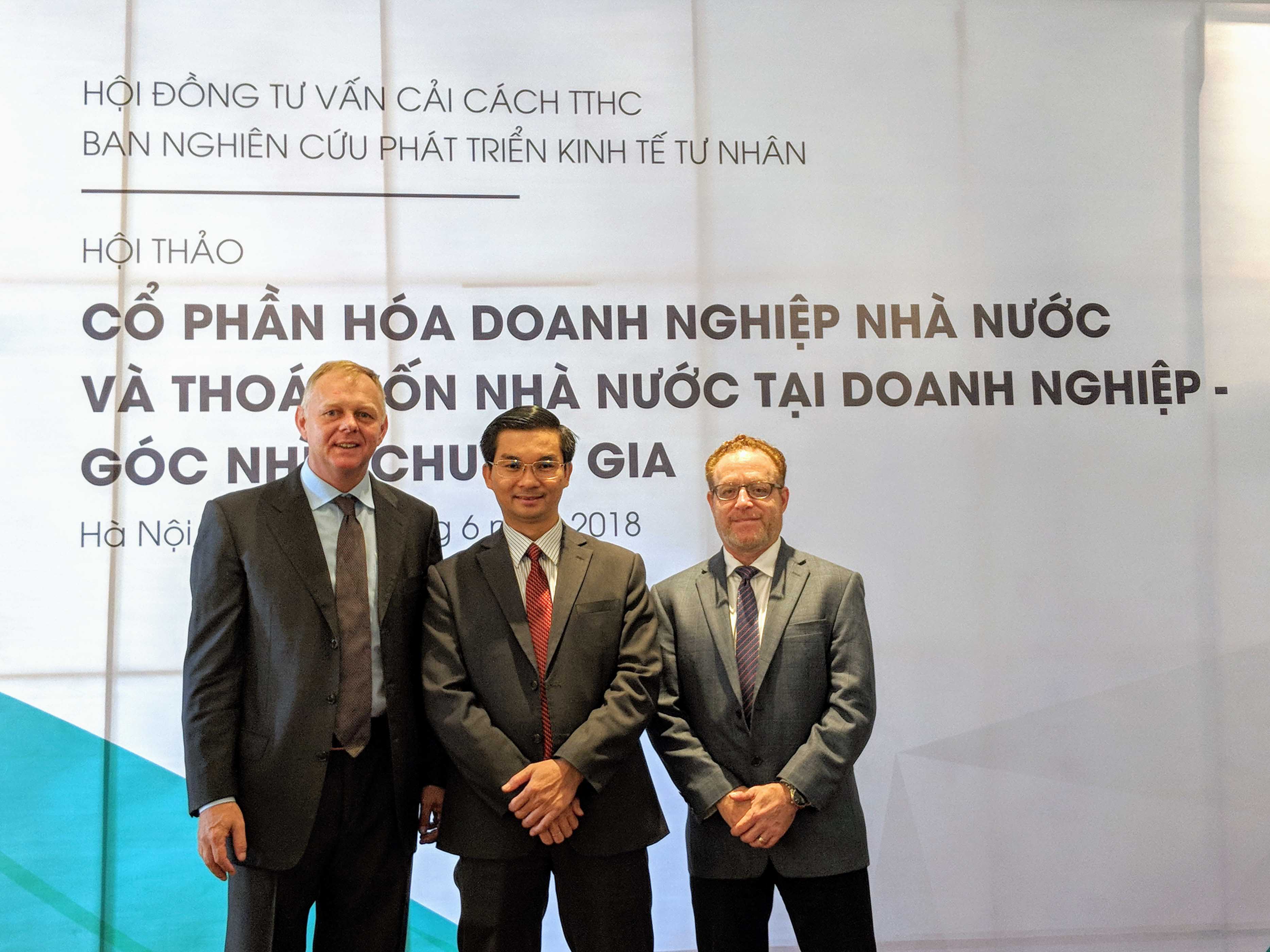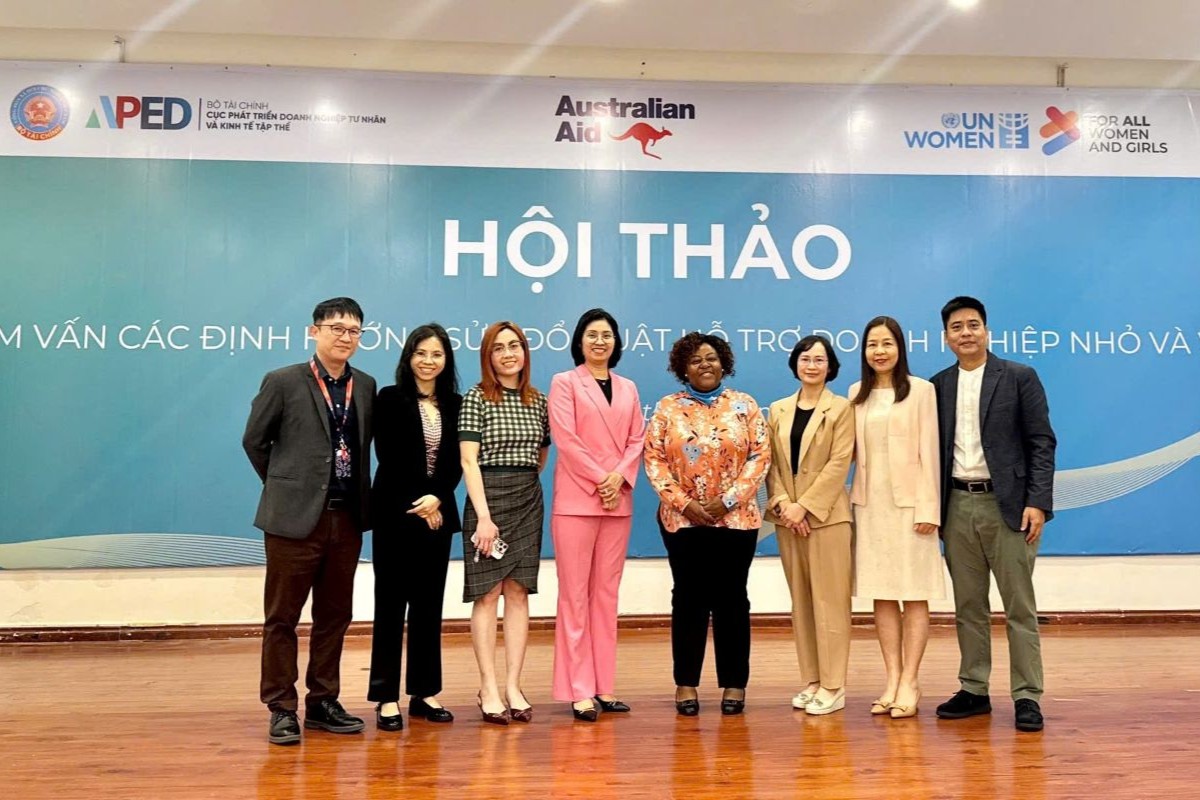Vietnam’s SOEs have long been plagued by inefficiency, an issue that holds the country’s economy back from its full potential.
According to the researchers’ executive summary: “Over the past 30 years, the restructuring of SOEs has been a key component of Vietnam’s economic reforms.”
Dr Victor Kane, Head of Department, RMIT Asia Graduate Centre, explained that while this process has been given top priority by Prime Minister Nguyen Xuan Phuc, it still faces challenges.
“It [equitisation] is being slowed down by a lot of impediments, a lot of obstacles, a lot of problems,” Dr Kane said.
“For example, some of the managers of the SOEs themselves are quite reluctant to equitise, I think because of what happens when you equitise is that you sort of give up some power, you open up your transparency to the public, and you have to be much more transparent with your financials.
“A lot of the leaders, and even employees, are hesitant to equitise.”
Dr Burkhard Schrage, Lecturer, School of Business & Management, added that a lack of good corporate governance is another major concern.
“This means there are companies where the CEO of a state-owned firm is also the chairman of the board, so basically he hires himself and sets his own salary,” he explained.
In addition, Dr Nguyen Quang Trung, Senior Lecturer and Discipline Lead, International Business, School of Business & Management, shared that foreign investors who are interested in acquiring shares of SOEs as they equitise are often put off by Vietnam’s land ownership structure.
“Land is a big part of assets,” he said, “and investors look at it and see they have to pay a lot for land, but they don’t really own the land.”
The researchers also found problems with the laborious, redundant application process for foreign investors, as well as in how SOEs are valued before the IPO.
Another issue is that the government has been reluctant to divest in its most valuable corporations.
“Currently it seems more about the quantity rather than the quality,” Dr Trung said.
“About 96.3 per cent of SOEs have been privatised, but the total value [of state capital that has been privatised] is less than 10 per cent.”
Recommendations
In response to these findings, the team has put forth a number of recommendations for the Vietnamese government as it continues to push forward with SOE equitisation.
“What we tried to do in this report is provide some short-range and some long-range recommendations,” Dr Kane said.
“One is to improve the attractiveness of SOEs. This means you have to improve corporate governance, you have to increase the transparency and time for folks to do due diligence on the company, and you have to increase marketing and PR.”
Dr Kane recommends policies such as employee stock ownership (ESOP) plans in order to incentivise such deals.
“You have to give them some skin in the game,” he explained.
Another recommendation of the research team is for the government to reduce its ownership in SOEs, more so than it has been willing to thus far.
“When the SOEs go public, the government is holding onto a lot of the ownership, clearly over 50 per cent,” Dr Kane said.
“That’s not a bad thing, but if they’re only taking a little chunk of that company and providing it to the public, and they’re holding onto 80 or 85 or 90 per cent, that’s not lending enough ownership to foreign investors and the public.”
Overall, Dr Trung and the rest of the research team believe that more efficient, streamlined SOE equitisation is a key to Vietnam’s sustainable economic growth.
“The public sector dominates the private sector and it cannot grow,” Dr Trung explained.
“This is really a ‘crowded–out issue’ in the Vietnamese economy, and this problem is arguably contributed to by SOEs.”
He hopes this research will have a long-term impact, as well.
“A priority in research at RMIT is government engagement,” he added. “And this can help in the development of the country.”
The VinaCapital funded research project Moving Ahead: How to Accelerate SOE Equitisation in Vietnam was submitted to the Advisory Council for Administrative Reform and the Committee
for Private Enterprise Research and Development in June 2018. The report is available for download in English and Vietnamese.
Story: Michael Tatarski





